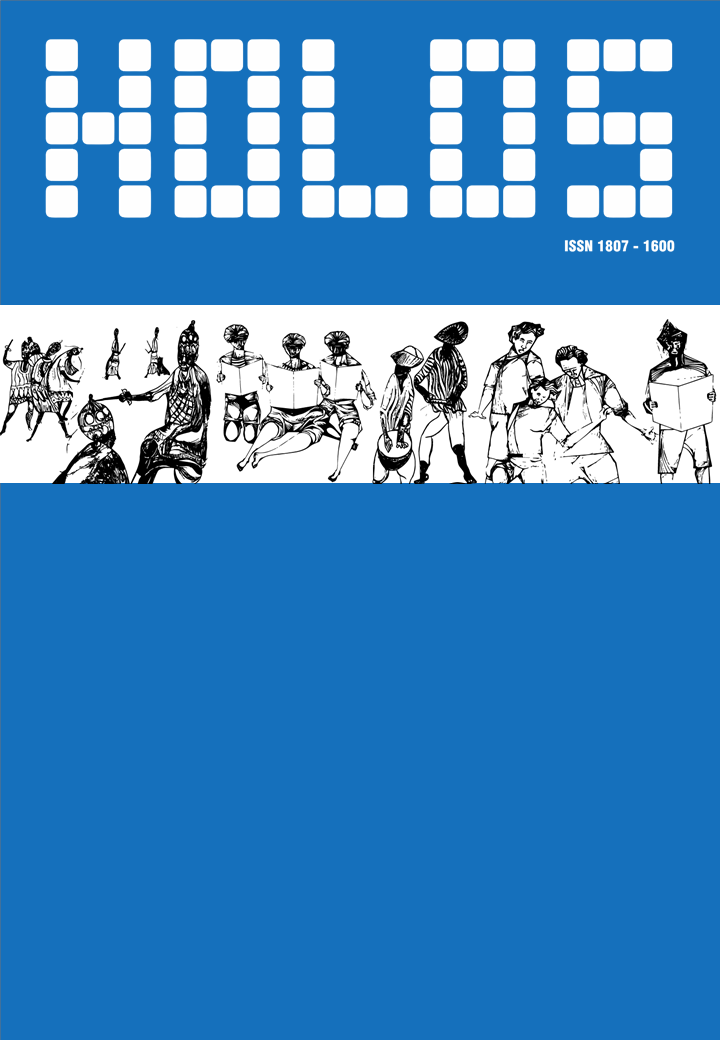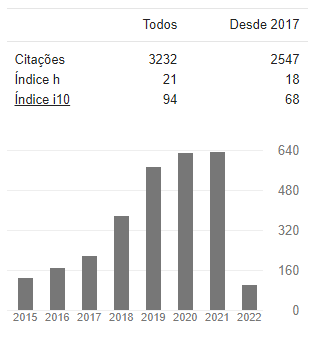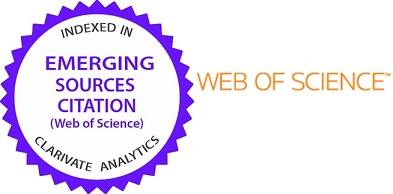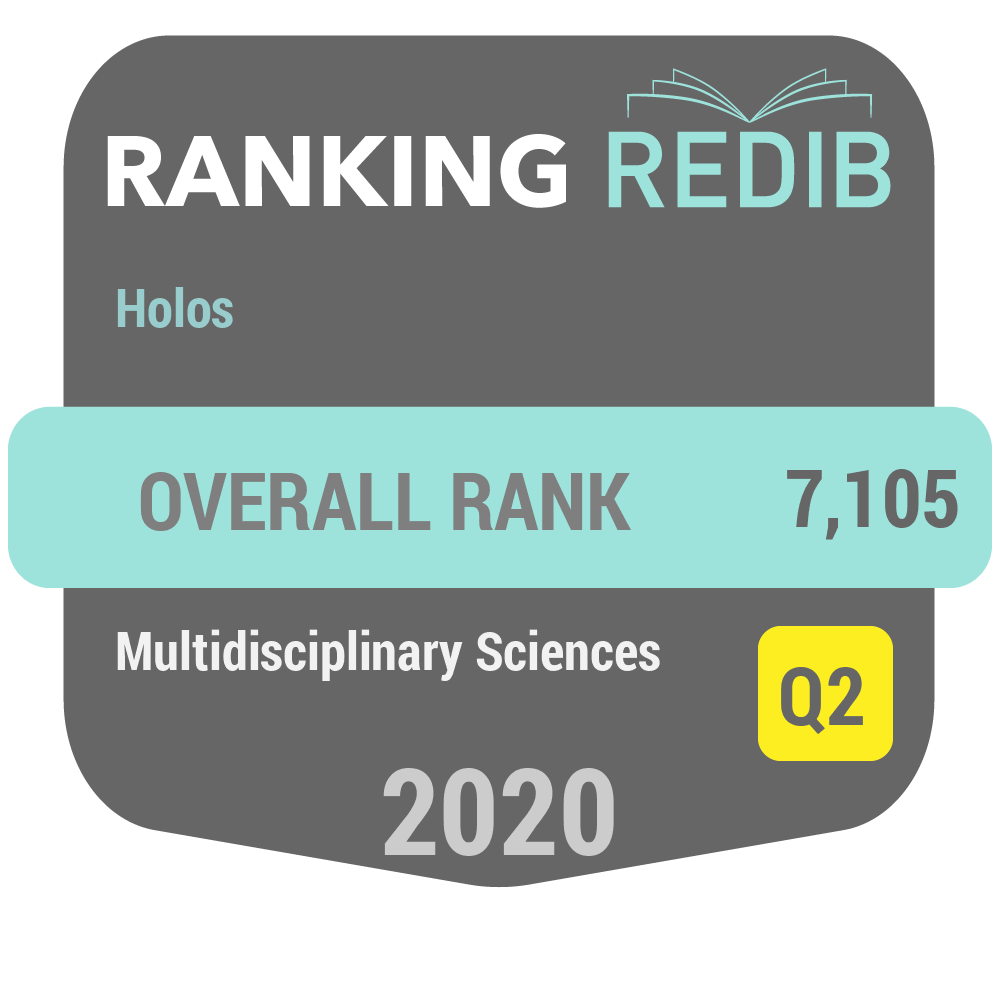EDUCATION IN TIMES NET GENERATION: HOW DIGITAL IMMIGRANTS CAN TEACH DIGITAL NATIVES
DOI:
https://doi.org/10.15628/holos.2016.3611Palavras-chave:
net generation, digital immigrants, digital natives, ensino e aprendizagemResumo
Members of the knowledge society, of the network society or of the informatics society are some names that seem to define the current generation. Net generation is a generic nomenclature which covers all the previous terms. Digital immigrants are the subjects whom were born before the advent of digital technologies and who joined to them. Digital natives are the subjects whom were born in the current generation and that would have special qualities, especially regarding the learning process. Considering all this context, a question arises: how the digital immigrants teach the digital natives? This item justifies itself because there is a meeting of generations, in theory, significantly differentiated. Due to this, it would be necessary to identify the appropriate educational forms according to the presented situation. Our teaching experience convinces us that, yes, we should valorize the information’s technologies and communication, understanding that these are means, not ends. It is important to highlight that any tool causes advances and regressions, a fact that serves to guide our teaching practice.
Downloads
Referências
ANDERSON, J. R. Cognitive psychology and implications. 3 ed. NY: W. H. Freeman and Company, 1990.
BENNETT, S., MATON, K., KERVIN, L. The ‘digital natives’ debate: A critical review of the evidence. British Journal of Educational Technology, v.39, n.5, p.775-786, Feb, 2008.
CASTELLS, M. Comunicación móvil y sociedad: una perspectiva global. Madrid: Siglo XXI, 2006.
CHAVES, H. V., MAIA FILHO, O. N., MELO, A. S. E. Educação e microrrelações humanas na educação profissional e tecnológica. Revista Brasileira de Ensino de Ciência e Tecnologia, v. 8, n. 1, p. 56-69, jan. 2015.
CORDEIRO, A. M., OLIVEIRA, G. M., RENTERÍA, J. M., GUIMARÃES, C. A. Revisão sistemática: uma revisão narrativa, Revista do Colégio Brasileiro de Cirurgiões, Rio de Janeiro, v.34, n.6, nov. 2007.
DUPAY, J. P. Nas origens das ciências cognitivas. São Paulo: UNESP, 1996.
FLUSSER, V. Filosofia da caixa preta: ensaios para uma futura filosofia da fotografia. São Paulo: Hucitec, 1985.
FLUSSER, V. A escrita: há futuro para a escrita? São Paulo: Annablume, 2010.
GÜNTHER, H. Mobilidade e Affordance como cerne dos estudos Pessoa-Ambiente. Estudos de Psicologia, v. 8, n.2, p.273-280, mai. 2003.
JONES, C., RAMANAU, R., CROSS, S., HEALING, G. Net generation or Digital Natives: Is there a distinct new generation entering university? Computers & Education, v.54, n.3, p.722-732, Apr. 2010.
KIRSCHNER, P. A., KARPINSKI, A. C. Facebook and academic performance. Computers in Human Behavior. v.26, n.6, p.1237-1245, Nov. 2010.
KENNEDY, G., JUDD, T., CHURCHWARD, A., GRAY, K., KRAUSE, K.-L. First year students’ experiences with technology: are they digital natives? Australasian Journal of Educational Technology, v.24, n.1, p.108-122, Sep. 2008.
KOYRÈ, A. Estudos de história do pensamento científico. 2 ed. Rio de Janeiro: Forense Universitária, 1991.
LÉVY, P. As tecnologias da inteligência. Rio de Janeiro: Ed. 34, 1993.
MARGARYAN, A., LITTLEJOHN, A., VOJT, G. Are digital natives a myth or reality? University students’ use of digital technologies. Computers & Education, v.56, n.2, p.429-440, Feb. 2011.
OBLINGER, D., OBLINGER, J. Is it age or IT: first steps towards understanding the net generation. In D. OBLINGER, D.; OBLINGER, J. (Eds.). Educating the Net Generation. Boulder, CO: EDUCAUSE, 2005, p.2.1–2.20.
PRENSKY, M. Digital natives, digital immigrants: do they really think differently? On the Horizon, v.9, n.6, p.1-6, Dec. 2001.
POZO, J. I. Aprendizes e mestres: a nova cultura da aprendizagem. Porto Alegre: Artmed, 2002.
SALAJAN, F. D., SCHÖNWETTER, D. J., CLEGHORN, B. M. Student and faculty inter-generational digital divide: Fact or fiction? Computers & Education, v.55, n.3, p. 1393-1403, Nov. 2010.
SCHAFF, A. A sociedade informática: as consequências sociais da segunda revolução industrial. São Paulo: Brasiliense/Unesp, 1990.
VEEN, W., VRAKKING, B. Homo Zappiens: growing up in a digital age. London: Network Continuum Education, 2006.
VYGOTSKI, L. S. Obras escogidas, Problemas del desarrollo de la psique. 2 ed. Tomo III. Madrid: Visor, 2000.
WAYCOTT, J., BENNETT, S., KENNEDY, G., DALGARNO, B., GRAY, K. Digital divides? Student and staff perceptions of information and communication technologies. Computers & Education, v.54, n.4, p.1202-1211, May. 2010.
WERTSCH, J. Vygotsky and social formation mind. Cambridge: Harvard University Press, 1985.
WERTSCH, J. Mind as action. NY: Oxford University Press, 1998.









































